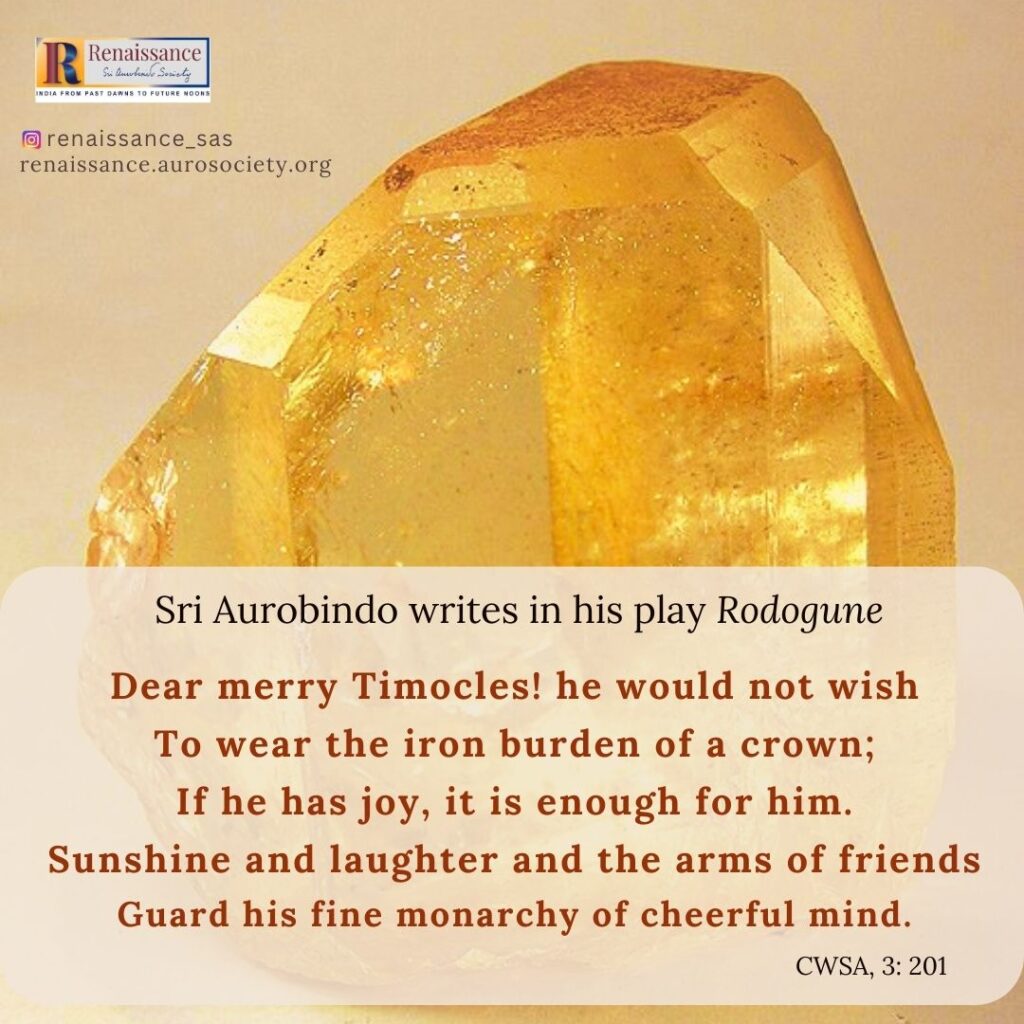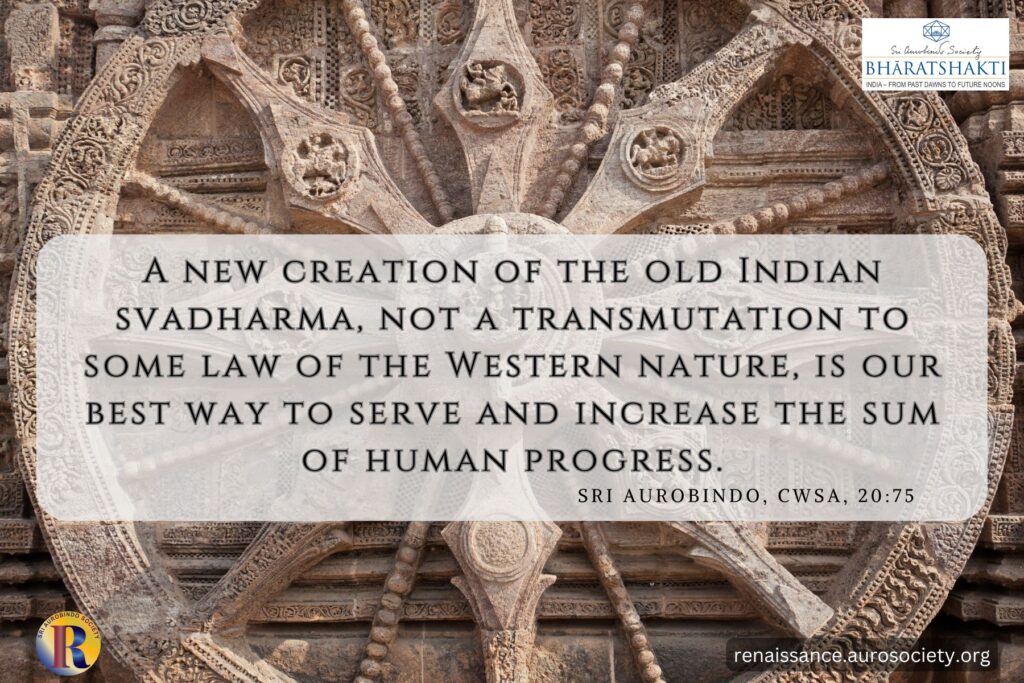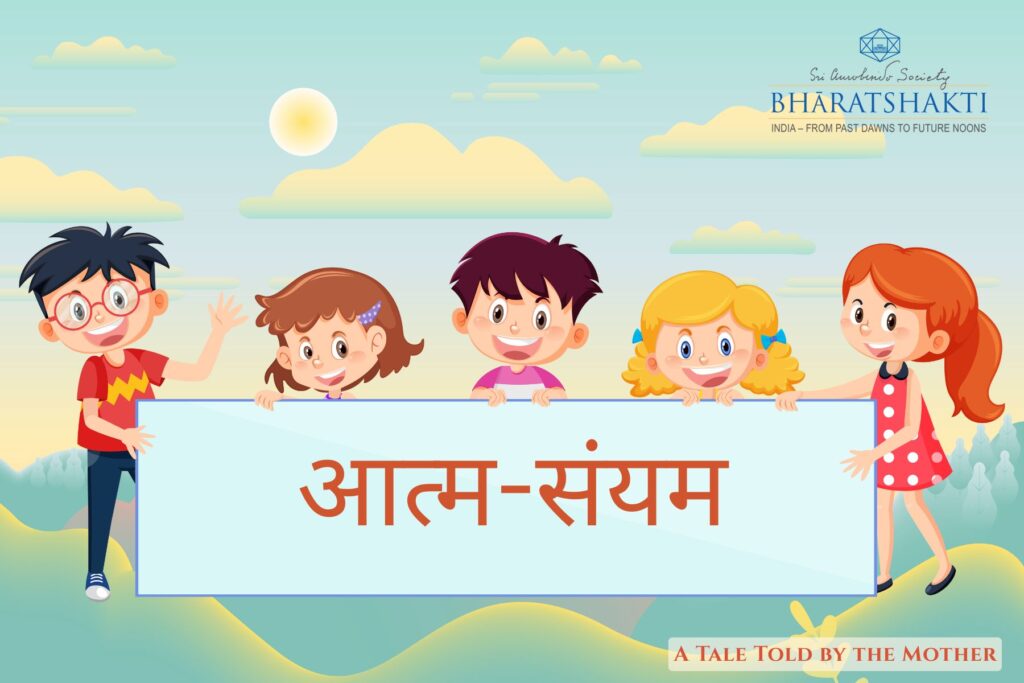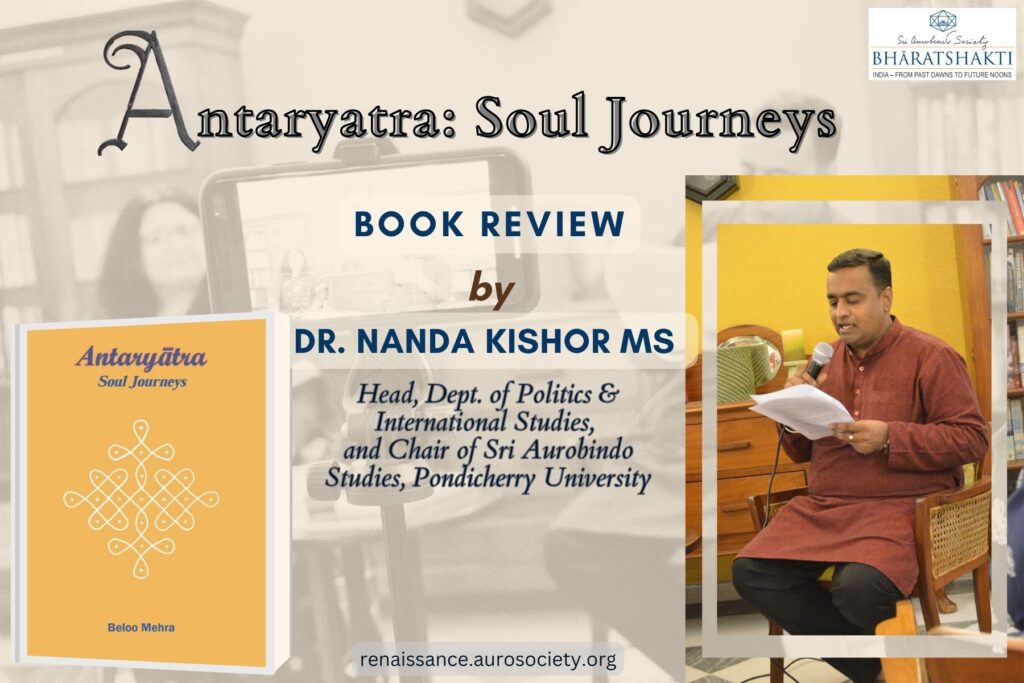Editor’s Note: The title Swarāt Samrāt of this next story in our ongoing series, The Upanishads Elucidated, is enough to suggest that our storyteller is inviting us to ponder upon the concept and practice of self-mastery and self-conquest.
PART 1

Once there lived a king in a prosperous land. He had two sons, twins, with the names of Lal and Neel. The boys were intelligent, brave and of noble character. If you thought the king was the happiest man alive, you would be mistaken. Yes, happiness is that difficult a thing. His problem was that despite having two sons he still did not have an heir.
Whenever the king asked his minister about whom he should pick as his heir, they said Neel and pointed at Lal, or said Lal and pointed at Neel. When he asked his queen, she said, “Why don’t you consult the boys?” But when he consulted the boys, they spoke at once, “My brother, of course!”
When he got news of a wandering saint the king ran to his hermitage. The wise man called the boys and showed them two jewels he had, two identical golden topazes, “Dear princes, choose wisely, for these may look alike, but they are as different as day and night.” The boys sat still and then suddenly extending their hands picked a different jewel each.
Neel said, “I will never part with this jewel. I want it to be stuck in a little crown that I will wear on my head always.” Lal held his jewel tightly in his palm, “And I will wear mine in a necklace so that I can feel it close to my heart forever.” The princes’ wishes were fulfilled. Very soon everybody observed a difference between the two boys.
Neel always wore his crown, and often had a frown. Lal smiled and laughed a lot, making light of heavy things.

Whenever a tricky problem was asked of Neel he concentrated a minute with his eyes closed. The jewel in his crown shone bright. Then he had the answer, just like that, a perfect answer to all problems of science or society. Neel became the chief justice of the land even before his moustache sprouted. Soon he was designing forts and leading a team of seasoned masons. His knowledge was as wide as the sky, his memory as deep as the ocean. People from other kingdoms came to resolve their conflicts with his help.
Lal was seldom seen in the palace. He was telling stories to the orphans in the temple, or singing river songs for the fishermen, or dancing to the rhythm of the farmer’s sickle. He inspired them all to work hard and enjoy their work. His mind was also as wide as the sky. And his feelings were as deep as the ocean. He knew tales of romance and bravery of distant lands and he wove them so enchantingly, each listener thought he could be that selfless hero or that lover indomitable.
Always remember that on the happiness you give will depend the happiness you get.
~ The Mother, CWM, Vol, 14, p. 181
Read more stories in this series HERE.

One day as Lal was tending to a coconut climber who had fallen off the tree and had broken an arm, a messenger came running to him, “Your father is very sick. In fact, if you don’t come on my horse carriage right away, it will be too late, for it will take us two days to reach the capital. Your father would like to bless the new king. And as you know he has still not decided.”
Lal spoke without pausing to mend the broken limb, “I am sorry to hear this. But I am sure he has doctors attending to him and his last moments will be bearable. But I am the only one here and as you can see there are many who need healing. So do convey my love and regrets to him, and also remind him what I always said – my brother, of course.”
And so Neel became king, and what an excellent king he was.
His tanks rolled over distant lands and his kingdom grew, as did his fame as a just king. Neighbouring kings offered their daughters, but Neel paid them no attention. Even his ministers were not consulted, and gradually they left him alone. People whispered that his only friend was the jewel in his crown. They had even heard him talk to it in private. His reputation as an austere task master grew, as did his envious enemies.
Lal, on the contrary, was sweet to all, young and old, man and woman, animal and insect. Of course he had a ring of women who fluttered around him – his music students, the nurses he had trained, and patients, all down with the fever of love. He still recounted stories when he had time off from healing duties. He acted them out adding dance and music. But he did not stay long anywhere. Other villages needed doctors and tutors.


One day a commotion disturbed Lal’s quiet village.
“The king has come to survey the land. Who knows why? We may even become homeless,” cried his attendants. But before they could react, a loud knock on the door froze them in place. Lal smiled his sun-piercing-through-the-clouds smile that reassured everyone. He opened the door and embraced the king, to everyone’s utter shock, “What a pleasant surprise, Neel. I have not seen you for ages. You look resplendent, or is it the reflection of the jewel on your face?”
Neel stiffened at the embrace and attempted a smile. He looked around, “Can we be left alone for some time please?”
After an hour the king emerged from the room and mounted his horse. He looked relaxed and his crown was hanging from his belt. He whistled a tune and for once seemed happy. His followers did not ask him any questions, for they knew he would not answer them. But they were not blind.
Back at the palace one saw the king inspect the horse’s shoes and give instructions to the stable hands. The cook was summoned and praised. The room attendants were given holidays. The night guards were asked to go home and sleep.
As for the music students who filed into Lal’s room after the king left, there was a surprise waiting for them. They wanted to ask Lal about the king and his ways and his clothes and his attendants, but they were sternly asked to start practicing. Lal paced up and down absentmindedly. He did not catch their mistakes. When they asked him to sing, he said he has a sore throat. Later a man with stomach ache asked him for medicine, but Lal asked him instead if he knew any medicine for headache.

CONTINUED IN PART 2
~ Design: Beloo Mehra



